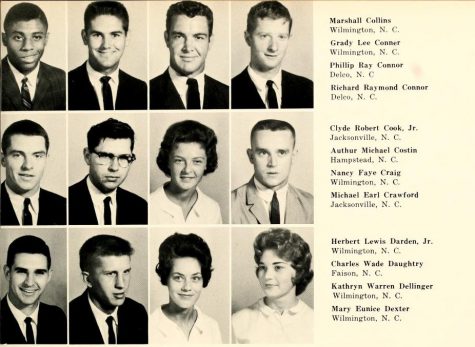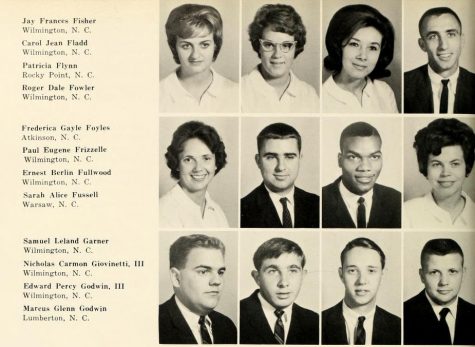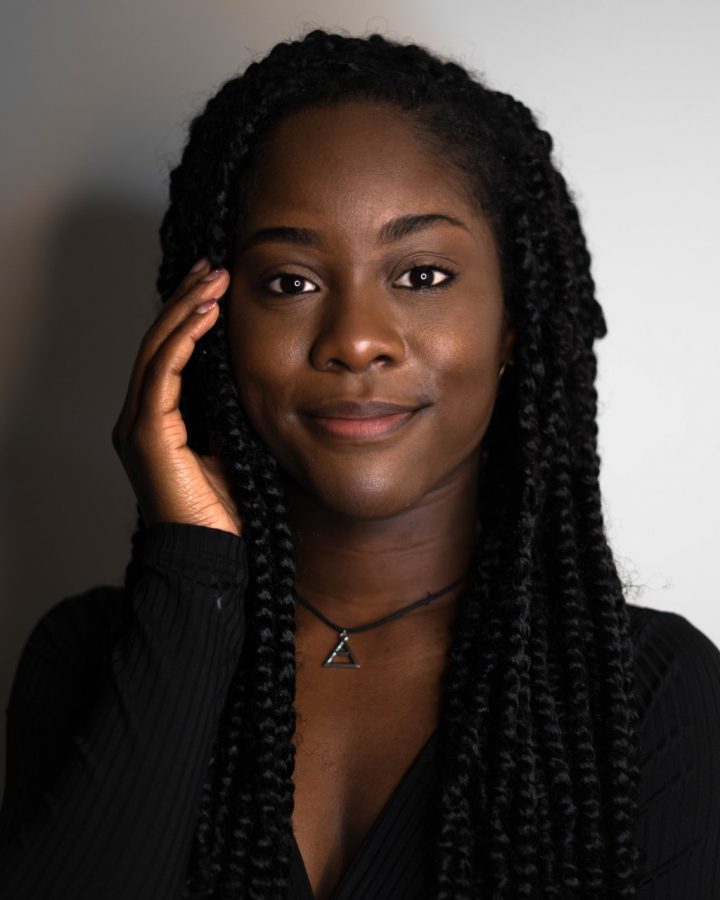UNCW’s story of black history
Brown v. Board of Education paved the way for the desegregation of schools in 1954, but it was not until Sept. 10, 1962, that the first black students attended class at UNCW, then known as Wilmington College. The students’ names were Marshall Collins and Ernest Fullwood.
It was also in 1962, that longtime Wilmington physician, Hubert A. Eaton, who later became the first African American chair of the UNCW Board of Trustees in 1981, came to Dr. John T. Hoggard, chairman of the New Hanover County Board of Education, and struck a deal—a gentlemen’s agreement—that as long Hoggard allowed qualified black students to attend the college, Eaton would not pursue legal action for not upholding the decision of Brown v. Board Education.
Prior to the deal, African American students were confined to the Williston College campus, now Williston Middle School which is a ten-minute drive and were not allowed to attend the College Road campus because of the segregation laws in place.
Fullwood went on to become the first African American to serve on the student senate; he was also the first African American to graduate from the university on June 12, 1966. He became an attorney and judge, while Collins became a local minister.

Lela Pierce Thompson’s story is also one to highlight, it is vital to note that she was a wife and mother of four when she started attending Wilmington College at the age of 26. She majored in education because of her love for children. Contrary to what many might think her experience was like, Thompson assured that everyone went out of their way to make her feel comfortable on campus and in her classes. In 1967, she became the first black woman to graduate from UNCW.

The Seahawk got to talk with Cynthia Wiggs, daughter of Thompson, who has been working at UNCW in the Office of Institutional Diversity and Inclusion for the past two and a half years. Wiggs describes when she found out that her mother made history at UNCW.
“It was hard to believe and also very surprising. I asked Manny Lloyd [Program Coordinator for Cultural Enrichment], ‘Are you sure?’ I went home and told my mom what I had found out and she asked ‘are you sure?’,” said Wiggs.
Thompson’s three granddaughters followed in her footsteps and attended UNCW as well; Wiggs mentioned the decision was because they did not want to go away for college, rather than to continue the legacy of their grandmother. They did not even know that their grandmother had made history at UNCW while they were attending.
“Actually, we still would not have known if I did not ask Manny Lloyd about a Black Friday program that they had in the Upperman African American Cultural Center,” said Wiggs.
Evidently, Thompson’s whole family feels proud that their mother and grandmother made history at UNCW, but Thompson was not able to share this news with her husband, Melvin Thompson who passed in 2015.
“He was her biggest supporter. He made sure that she made it to school every day and would have dinner ready for her when she got back. I know my father would have been extremely proud of my mother.”
Following his acceptance to the Board of Trustees in 1981, Eaton addressed those on the board. His words still hold much prevalence today even though these words were spoken 19 years after Colins and Fullwood first attended Wilmington College and 39 years ago.
“Depending upon one’s societal perspective, 19 years may indeed seem like an incredibly long or short time span. Nevertheless, these 19 years have seen considerable racial progress produced partly by changes in attitudinal patterns and partly by new laws. The resulting changes are too numerous to mention.”
Speaking of women who have made an impact at UNCW, it is key to highlight the words of Ricki Nelson, our newly-crowned homecoming queen. She’s the fourth black woman to gain the title at UNCW.
“Given the history of both the school and city, I think it speaks to the progress of the campus culture,” said Nelson, while commenting on her election by her predominantly white peers.
Nelson, empowered by her experience at a Predominantly White Institution (PWI) and who robustly stands behind the hashtag #TakeUpSpace, one which she adopted during her campaign and which first appeared on her socials when she explained why her campaign was Beyonce inspired, also says that while social media and society as a whole tries to tell us what black is supposed to look like, she knows her potential is limitless because her history tells her so. While people of color (POC) might want to take a survival approach and assimilate, she has come to acknowledge the “full breadth of which blackness exists” and encourages other POC to do that, embrace their history and culture.
While the percentage of black students currently attending UNCW is low, around 4 percent, it is safe to say that here at UNCW we should be proud that figures such as Eaton, Fullwood, Collins and Thompson form a part of the institution’s history. As we are looking at the past, it is awe-inspiring to read about and be able to witness black people do what Nelson calls being unapologetically who they are.








Ainoa • Mar 3, 2020 at 10:20 am
Wow! This is an incredible article. As a woman of color, I feel an emotional connection to this piece. Well done.